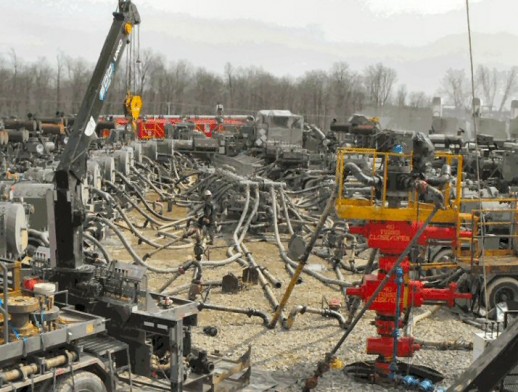Shale Gas Forum Emphasizes Importance Of Oversight

Potter County Today
U.S. Secretary of the Interior Ken Salazar hosted a forum on hydraulic fracturing for the production of natural gas and related issues on Tuesday. During the three and one-half hour session, speakers as diverse as Secretary Salazar and Steve Moyer, vice president for government affairs with Trout Unlimited, acknowledged the need for increased production of shale gas while emphasizing the importance of environmental oversight.
Salazar said the Obama administration is committed to encouraging renewable energy sources at the same time it promotes migration from coal and oil to natural gas. He described gas as a cleaner fuel source that will help the U.S. meet ambitious goals for cutting carbon emissions while strengthening energy independence. Salazar pledged the federal government’s continued study of hydraulic fracturing, while expressing hope that strong regulation and advancing technology will allow gas production to proceed without environmental compromises.
Trout Unlimited’s Moyer said federal and state agencies must be vigilant because irresponsible drilling could have a devastating impact on water and land resources. Moyer called for strict control of water withdrawals, road construction and stream crossings, recycling/treatment of contaminated water and avoidance of drilling in riparian areas and flood plains. “We do think this shale gas production can occur without any harmful impact if all of these protective measures are taken,” Moyer added.
Sherri Stuewer, VP for environmental policy and planning at Exxon Mobil, warned that federal regulations that supersede state-by-state standards could stall the development of shale gas and remove local flexibility. “Best practices in the industry sometimes depend on customizing them to the site,” Stuewer said. She added that Exxon Mobil, with its acquisition of XTP, is the largest natural gas producer in the U.S. The company sees “enormous potential” in shale gas production, Stuewer said.

Jim Kleckner, VP of operations for Anadarko, addressed two common misconceptions. He said gas production requires a fraction of the amount of water needed for other energy sources, such as nuclear, and other consumptive uses. Second, Kleckner said that shale gas wells contain safeguards — cement casing around the sturdy piping — to protect groundwater supplies, which are located thousands of feet above the gas-bearing shale.
Peter Lehner, executive director of the Natural Resources Defense Council, said the assurances by Stuewer and Kleckner were encouraging, but strong regulations and enforcement are necessary. “Even if ‘most’ of the operators do it right all of the time, the consequences of one company doing it wrong even once are unacceptable,” Lehner said. He called for certain sensitive environmental areas being declared off-limits to drilling.
